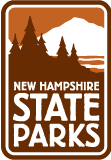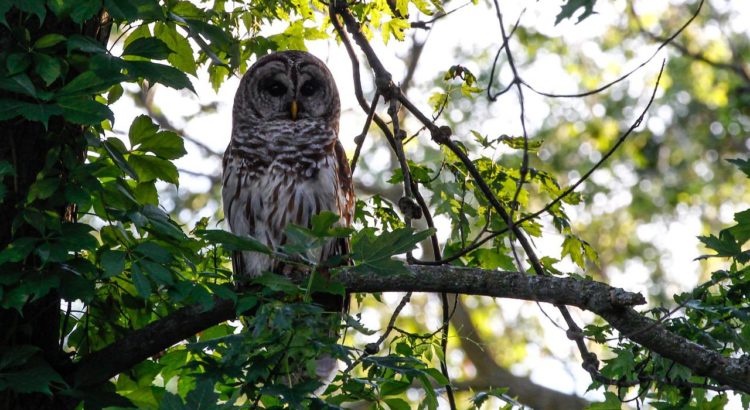Tracy Lyons — Discover the Power of Parks Interpretive Ranger — SCA NH Corps
New Hampshire nights are filled with sounds of cicadas, crickets and frogs. However, if you listen closely you might be able to hear another of New Hampshire’s night time residents. There are nine species of owls that have been spotted in New Hampshire. Here are the nine calls of the owls of New Hampshire and the habitats you are likely to hear them in. Next time you are listening to the sounds of the night you might be able to recognize hoo’s calling.
Barred Owl
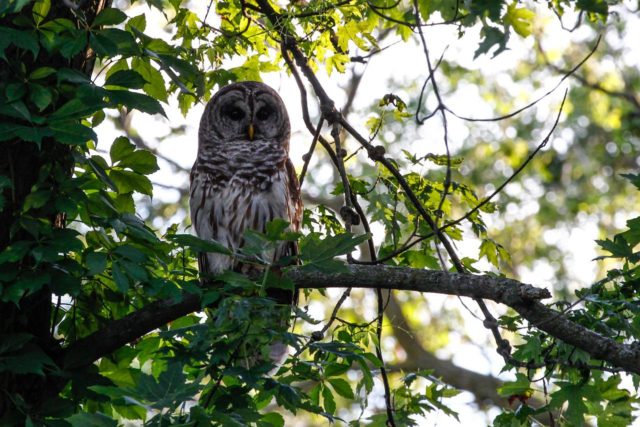
“Who cooks for you, who cooks for you all”. The Barred Owl is the most widespread and commonly found owl in the state. It’s call sounds as if it’s asking “who cooks for you , who cooks for you all.” Barred Owls can often be spotted in mixed forests, nesting in cavities.
Great Horned Owl
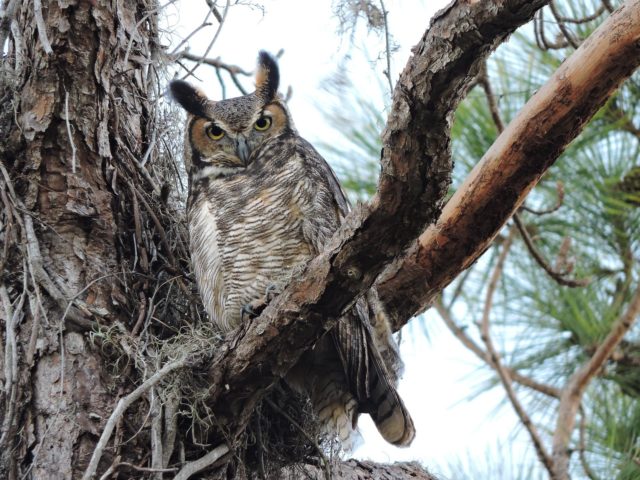
When you think of an owl, probably the Great Horned Owl comes to mind. It has the classic “hoo, hoo-hoo, hoo, hoo” call that owls are known for you. Males will have a deeper pitch to their call, while females have a higher pitch. They are not spotted as frequently as the Barred Owl but can be found throughout the state in mature forests and sometimes city parks.
Barn Owl
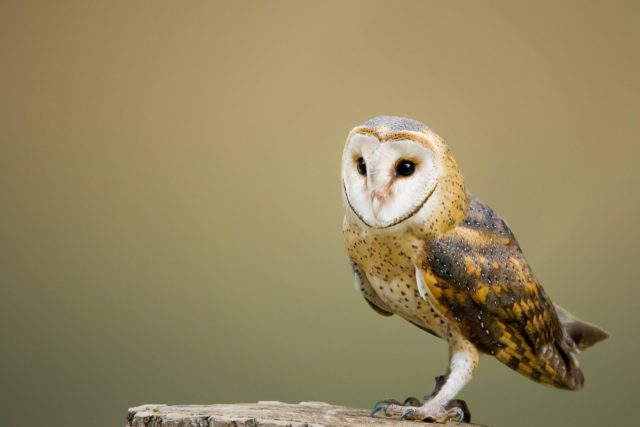
If you hear a harsh screech late at night it is probably the call of a Barn Owl. They are not able to make the classic hoot sound that other owls make. It is believed that this screech and their snow white faces inspired the myth of the banshee. They prefer areas with fields or pastures and buildings such as barns, silos and churches.
Snowy Owl
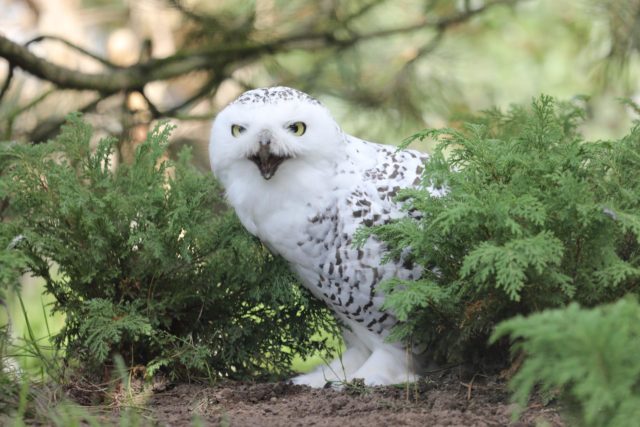
The Snowy Owl rarely makes an appearance in New Hampshire but can sometimes be spotted in the winter. They prefer open areas such as beaches, marshes, islands on the coast, and even airports. They make a series of hoots, whistles, and hisses to communicate. The males low hoots can be heard up to seven miles away.
Northern Saw-whet Owl
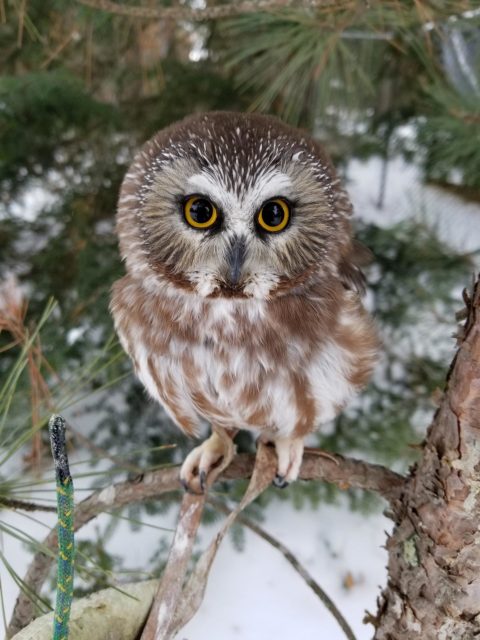
The smallest owl you’ll hear in NH, the Northern Saw-whet can be found year-round. This little owl can be found in mature forests and wetlands. Their call sounds like whistles going “Toot, toot, toot toot”.
Eastern Screech Owl
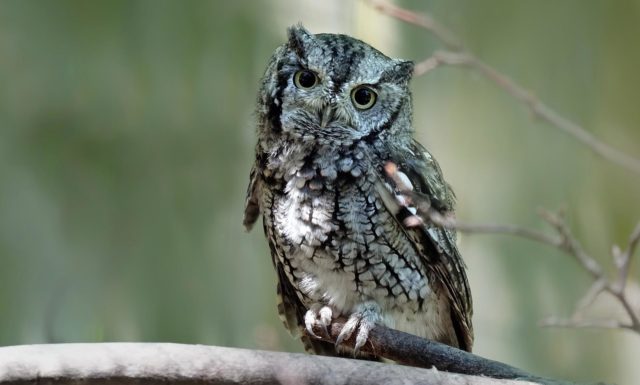
The Eastern Screech is resident that can be found all year round in southern NH. They have unique call for an owl. Their songs can sound like whinny of a horse or a trilling noise. Like others of the species they prefer an open area for hunting with a wooded area nearby.
Long-eared Owl
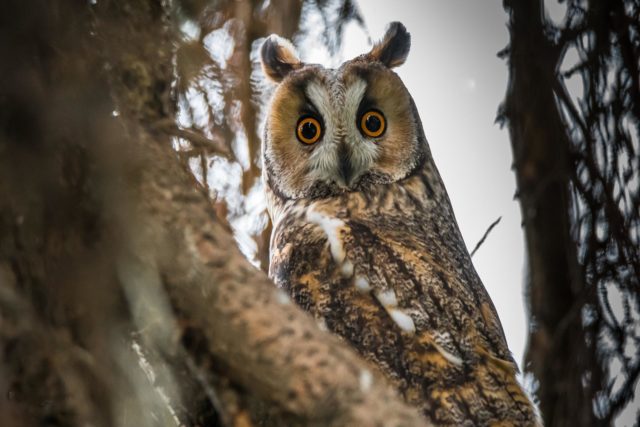
The Long-eared Owl has been spotted throughout NH but it does not visit often. You will most likely hear the males calling in a series of 10 or more slow, steady “whoo’s”. These visitors prefer forested areas next to open habitats such as fields or forest clearings.
Short-eared Owl
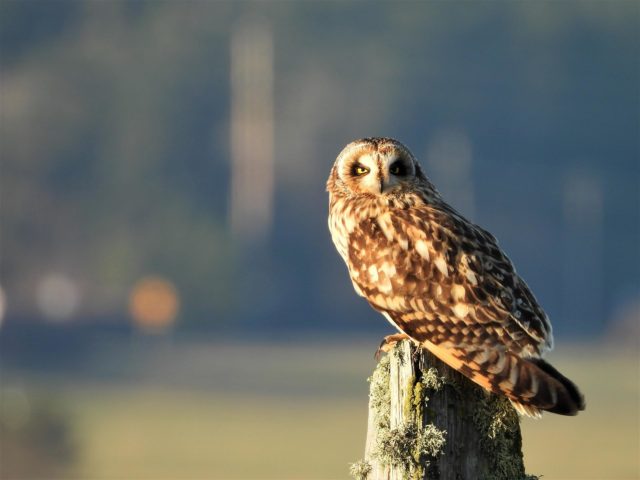
The Short-eared owl is a rare visitor that can be spotted during the winter. The males make the most variety of calls. They make a barking “kee-ow” or a 13-16 “whoos” when they are flying. During their mating ritual they can also make wing-claps. They prefer to nest near open areas like fields, clearings or marshes.
Great Gray Owl
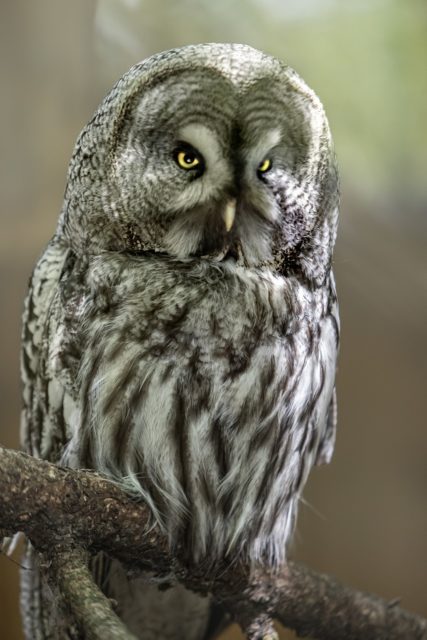
Another uncommon visitor that you might spot in the winter is the Great Gray Owl. You might spot them in woodlands close to open areas such as marshes or bogs. Their call sounds like a deep “whoos” spaced at regular intervals.
